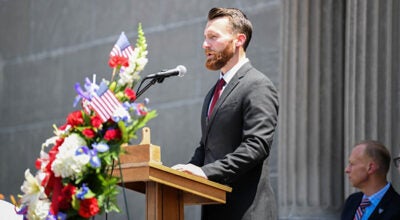Setting the record straight on Fitch family
Published 11:08 am Thursday, April 4, 2013
To the editor:
In response to Charlie Gill’s March 21 article about Fitch Camp, my late brother, Bob, were counselors at camp and Bob was director. This sensational article gives an unfair negative picture of the Fitches and, as I point out, many untruths.
Root (E. Root Fitch) did not get his fortune from his father, he got it from a cousin and his brother. Root’s father was NEVER involved in railroads. His father was a successful farmer in New York. Root got the farm because of his service in the Revolutionary War (the deed was signed by George Washington).
Root was NOT “poor as Job,” as the article indicated. He was a local farmer owner, but also had income as half owner of a New York dairy farm.
Also, Root and his brother graduated from Hamilton College in New York in the 1880s. Few people attended college at that time, which indicates the social and economic status of the Fitches.
The Fitch fortune came not from the father, as the article states, but from a cousin who came from a wealthy Brooklyn family (see future “Fitch Camp” display at Dowagiac Area History Museum).
The following quote from the article, “A lady named Bessie sought him out, married him and helped him spend his money” is belittling and paints her as a conniving gold digger.
Believe me, she was NOT that. She gave great loving care in the years when he most needed it.
(In fact, Bessie didn’t seek him out. She was visiting her sister, Hattie, who was Root’s housekeeper. In the course of those visits, Mr. Fitch was very impressed with Bessie, as she was a very vivacious lady, skilled in good, gracious manners, conversation and brought congeniality to any gathering. They enjoyed each other.)
Root’s only son was very supportive of the marriage. In fact, his son, Robert, and Robert’s wife “stood up” for Root and Bessie at the wedding.
I knew the Fitches in the last years of Mr. Fitch’s life, and her care for his well-being was outstanding.
Paragraph seven seemed to paint a negative picture of Paul Bakeman.
Yes, Paul did work for the Fitches and because of his artistic and musical abilities and dedication to long and hard work was an asset to the family.
The rest of his life he did not have to have a “job,” as he was successful in personal business.
He also donated much time and money in the Dowagiac area.
The part of lacing up Bessie’s corset, one would expect to appear in the tabloids you see at check-out lanes at grocery stores.
The part of Bessie’s son involved with airports?
Not true. She never had any children.
Root did not buy a Bakeman farm at Cable Lake. It belonged to the Redding family, who operated a summer resort on Dewey Lake.
Fitch Camp was not “administrated” by the school system. Mr. Canfield and Mr. Dorgan worked for Fitch Camp as many educators, students and non-educators have done all these many years.
Root was not paid out of a “pool,” as mistakenly mentioned. Fitch income came from investments in stocks and bonds through a New York investment firm. Mr. Fitch’s income did NOT stop at his death, it continued. The article further stated Bessie didn’t adjust her lifestyle. She didn’t have to. Money kept coming. Like any large estate settlement, the IRS and lawyers got a lot, but far from all of it.
The article further mentions Bessie “died in debt.” One only needs to see the results of her will to know that is not true.
The Fitches gave a great deal to the Dowagiac area. Much of it public knowledge (Fitch Camp, churches, etc.), but much not publicly known. They gave much to the needy in buying food, clothing, paying utility bills, etc.
I can vouch for the above information because I lived in the Fitch household from 1949 through 1962.
I knew them well and want them to have the credit they deserve.
Jack Hartsell
Berrien Center





